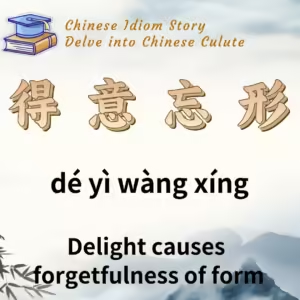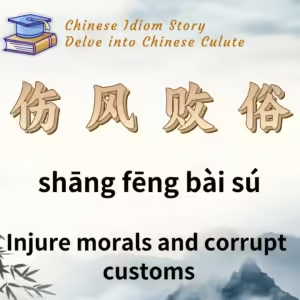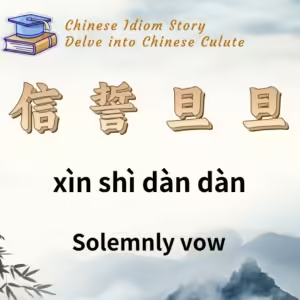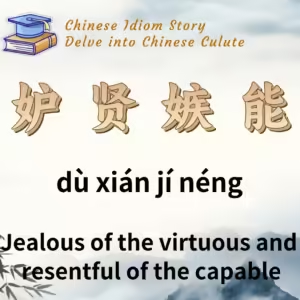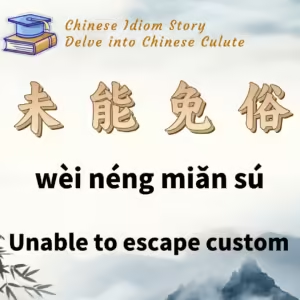
Chinese Idiom: 未能免俗 (Wei Neng Mian Su)
English Translation: Unable to escape custom
pīn yīn: wèi néng miǎn sú
Idiom Meaning: This idiom means that one has not been able to break free from social norms or customs and continues to act according to conventional practices.
Historical Source: 《世说新语 · 任诞》 (The Book of the Later Han: Ren Dan).
Idiom Story:
During the Wei and Jin periods, a group of seven notable figures known as the “Seven Sages of the Bamboo Grove” were famous for their unconventional behaviors. Among them was 阮籍 (Ruan Ji), who had a reputation for his peculiar habits and disregard for social norms. Ruan Ji, known for his extreme indifference to propriety, would lie on the ground while drunk, regardless of cleanliness, and remain there for days. He even sought a position in the military simply to access fine wine.
阮咸 (Ruan Xian), Ruan Ji’s nephew, also shared a passion for music and was well-regarded for his skill with the pipa. He invented a string instrument similar to the moon-shaped lute, which was later named “Ruan” after him. Both Ruan Ji and Ruan Xian lived on the same street, with Ruan Ji and his nephew residing on the southern side, while the wealthier members of the Ruan family lived on the northern side of the street.
Despite their poverty, the Ruan Ji and Ruan Xian family adhered to local customs, such as the annual tradition of airing out clothes to prevent mildew. The wealthy Ruan family members displayed their luxurious garments, creating a dazzling sight. Observing this, Ruan Xian suggested to his uncle that they also participate in the custom.
However, Ruan Xian and his uncle only had a single coarse cloth pair of pants to hang out. They strung it up on a bamboo pole and hung it in their courtyard. Neighbors saw this and advised Ruan Xian to skip the airing, noting that their contribution seemed too shabby. Ruan Xian responded, “This is a tradition, and we must follow it, no matter how humble our garments may be.” Thus, the phrase “未能免俗” reflects their adherence to tradition despite their circumstances.


